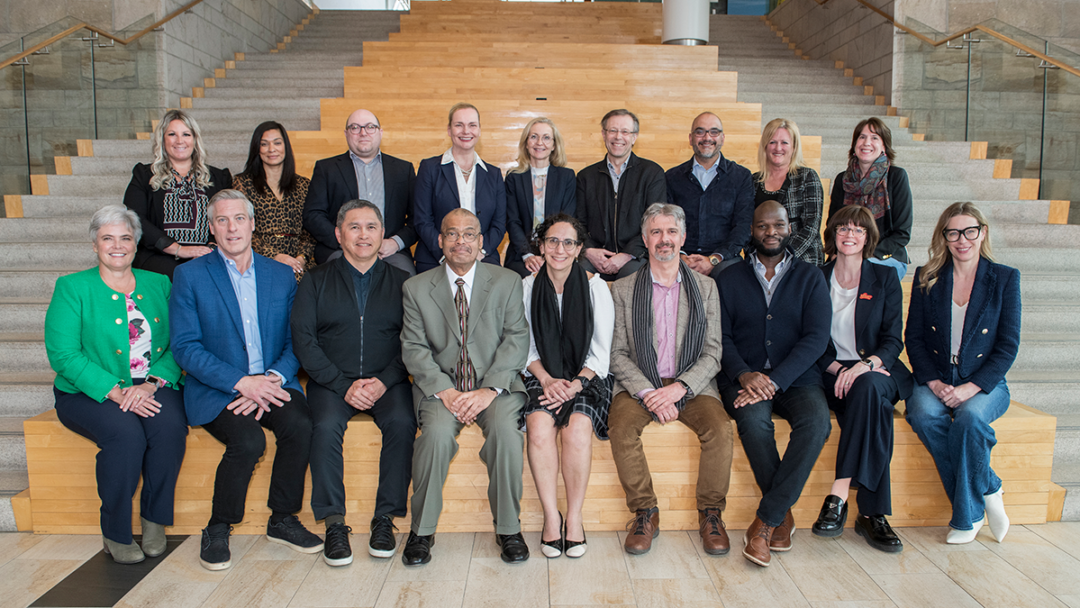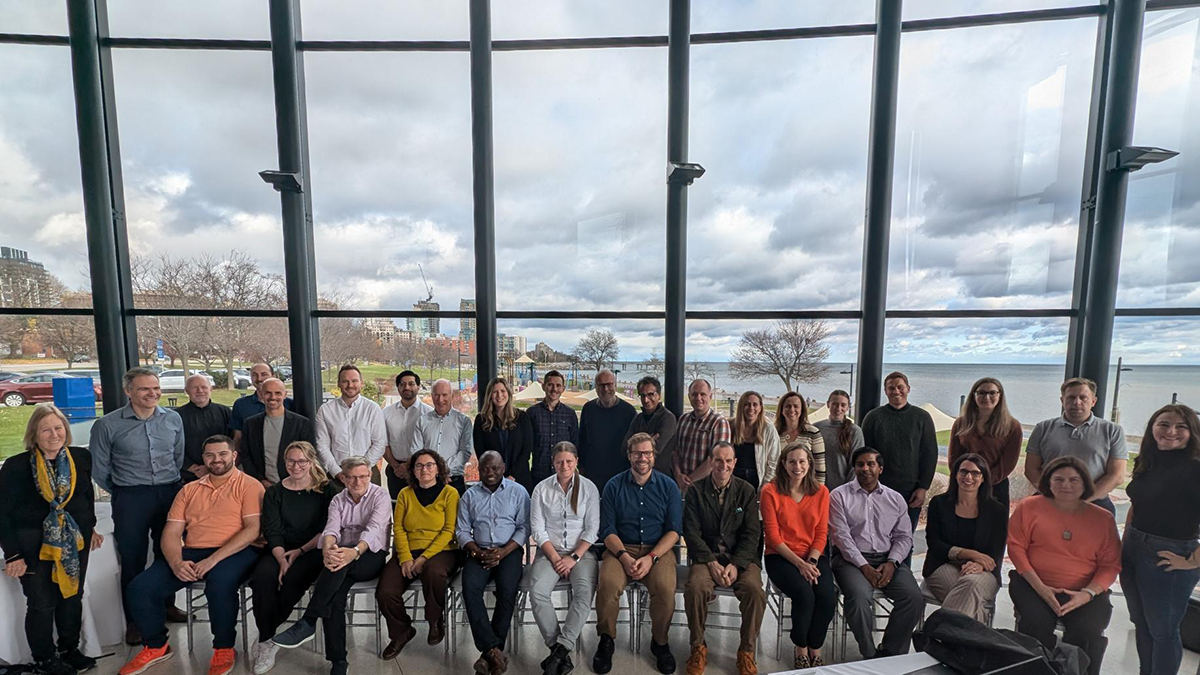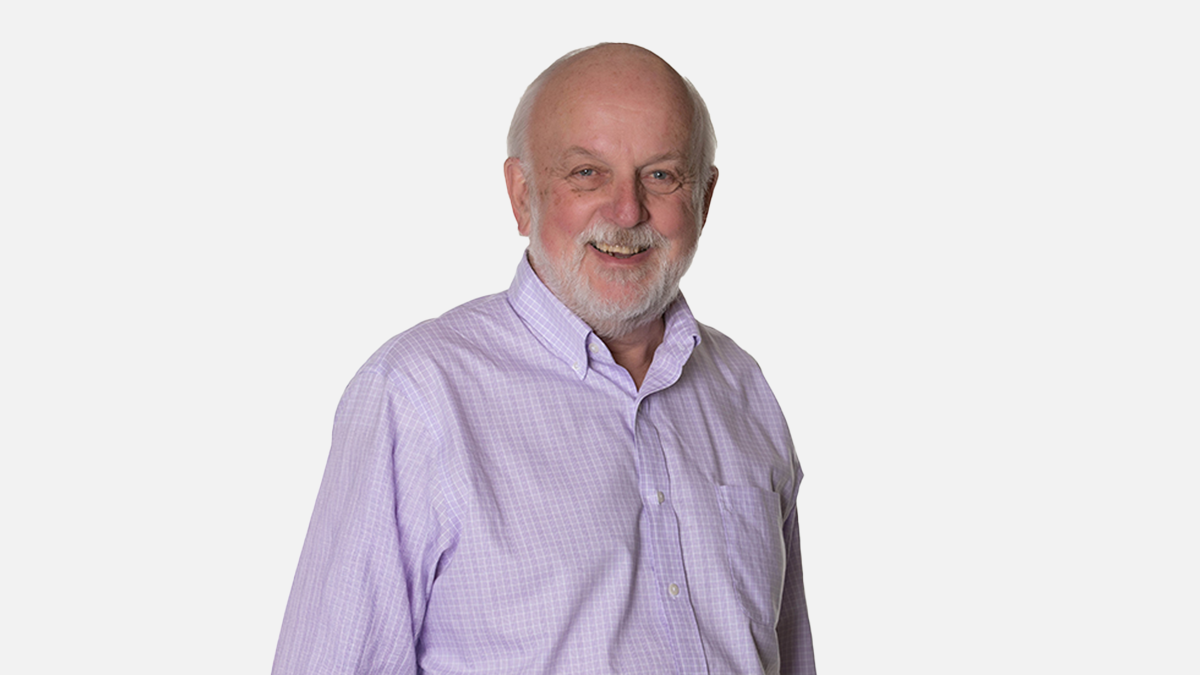Faculty leaders return to the classroom for National Health Fellowship

Three leaders with McMaster University’s Faculty of Health Sciences have completed the National Health Fellows Program, with another two leaders soon to follow. The fellowship equips senior health leaders with the networks, behaviours, and evidence-based tools to advance health and wellbeing across the broader healthcare system along other leaders.
The six month program is one of two offerings of the Michael G. DeGroote Health Leadership Academy (HLA), a unique collaboration between the Faculty of Health Sciences and the DeGroote School of Business. The National Health Fellows program is the first of its kind in Canada and creates a platform to mobilize and enable effective health care in the country.
Dina Brooks, executive vice-dean and associate vice-president (Academic) of the Faculty of Health Sciences, and Alfonso Iorio, chair of the Department of Health Research Methods, Evidence, and Impact at McMaster completed the program in October 2023. Brooks says she is grateful to be among the 18 senior leaders who participated in the inaugural cohort and are now mentoring the second cohort.
“Through the National Health Fellowship, I’ve developed essential leadership skills, built strong networks, and acquired evidence-based tools. This program has empowered me to collaborate effectively with other leaders and drive meaningful advancements in academia and across the broader healthcare system,” says Brooks.
Sarah Wojkowski, vice-dean, Health Sciences and executive director of the School of Rehabilitation Science participated in the most recent cohort, and Mark Walton, vice-dean, Faculty Affairs and Saroo Sharda, associate dean, Equity & Inclusion are being supported by the Faculty to join the program’s third cohort in April 2025, applications for which are currently open.
“The National Health Fellows Program has a unique approach with its pan-Canadian health perspective that exposes participants to best practice approaches outside of the Canadian system. The focus on systems thinking and change and a commitment to supporting leadership communities that are open, participatory and peer-driven also makes this program stand out,” says Paul O’Byrne, dean and vice-president of the Faculty of Health Sciences.
“The Faculty of Health Sciences has made it a priority to support individuals to participate in this program. Fellows become an integral part of a national network of like-minded leaders seeking to affect change in our health care system,” adds O’Byrne.
Over the course of three four-day modules delivered over six months, delegates develop a deep understanding of how to nurture a leadership culture that embraces a systems thinking mindset, gain the practical skills and tools to progress their own leadership capabilities, and put these into practice tackling real life opportunities and challenges within their organizations and across the broader health system.
Once delegates complete the program, they begin a lifelong relationship with McMaster’s Health Leadership Academy. Fellows are asked to mentor, facilitate and speak to future cohorts. Fellows play an active role in co-creating future offerings of the program.
Collaborations & Partnerships, Education, Faculty & Staff, LeadershipRelated News
News Listing

Department of Medicine ➚
Pain to progress: An impactful history of lupus research and care at McMaster
Collaborations & Partnerships, Education, Research
2 days ago

MIRA ➚
MIRA welcomes scholars from across the globe for landmark International Consensus Meeting on Wearables for Measuring Mobility in Aging Populations
Collaborations & Partnerships, Research
December 12, 2024

